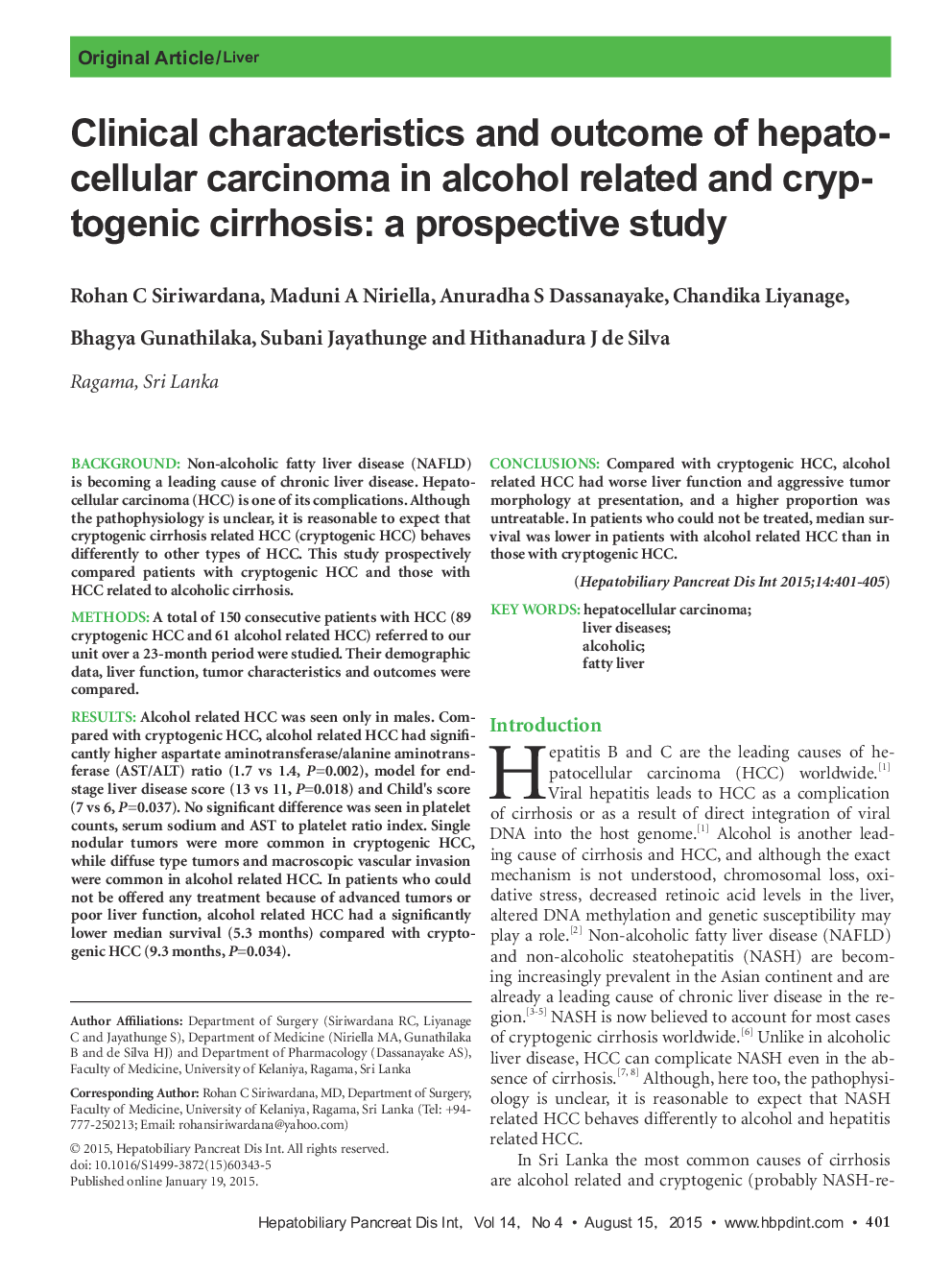| Article ID | Journal | Published Year | Pages | File Type |
|---|---|---|---|---|
| 3337155 | Hepatobiliary & Pancreatic Diseases International | 2015 | 5 Pages |
BackgroundNon-alcoholic fatty liver disease (NAFLD) is becoming a leading cause of chronic liver disease. Hepatocellular carcinoma (HCC) is one of its complications. Although the pathophysiology is unclear, it is reasonable to expect that cryptogenic cirrhosis related HCC (cryptogenic HCC) behaves differently to other types of HCC. This study prospectively compared patients with cryptogenic HCC and those with HCC related to alcoholic cirrhosis.MethodsA total of 150 consecutive patients with HCC (89 cryptogenic HCC and 61 alcohol related HCC) referred to our unit over a 23-month period were studied. Their demographic data, liver function, tumor characteristics and outcomes were compared.ResultsAlcohol related HCC was seen only in males. Compared with cryptogenic HCC, alcohol related HCC had significantly higher aspartate aminotransferase/alanine aminotransferase (AST/ALT) ratio (1.7 vs 1.4, P=0.002), model for end-stage liver disease score (13 vs 11, P=0.018) and Child's score (7 vs 6, P=0.037). No significant difference was seen in platelet counts, serum sodium and AST to platelet ratio index. Single nodular tumors were more common in cryptogenic HCC, while diffuse type tumors and macroscopic vascular invasion were common in alcohol related HCC. In patients who could not be offered any treatment because of advanced tumors or poor liver function, alcohol related HCC had a significantly lower median survival (5.3 months) compared with cryptogenic HCC (9.3 months, P=0.034).ConclusionsCompared with cryptogenic HCC, alcohol related HCC had worse liver function and aggressive tumor morphology at presentation, and a higher proportion was untreatable. In patients who could not be treated, median survival was lower in patients with alcohol related HCC than in those with cryptogenic HCC.
